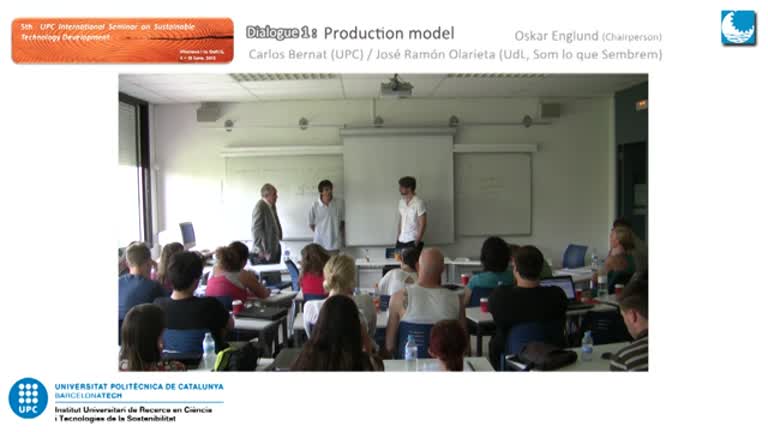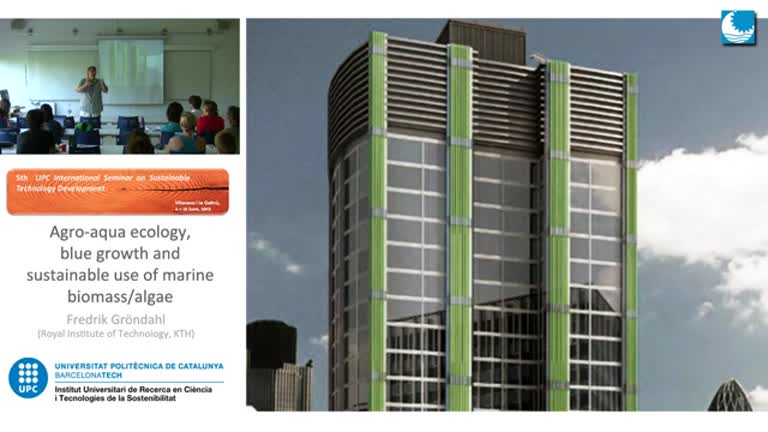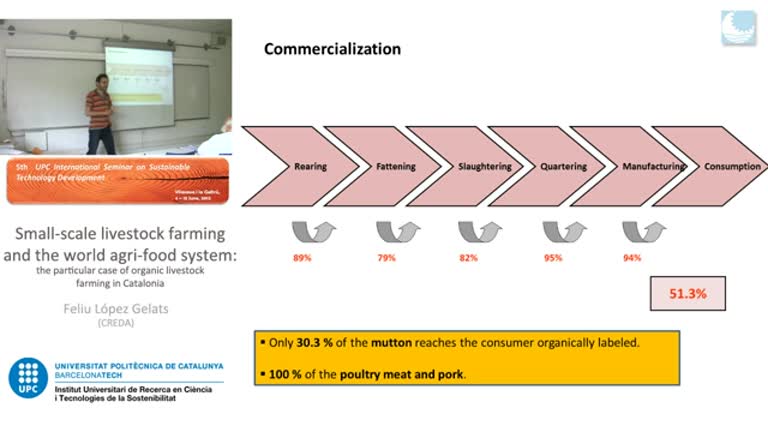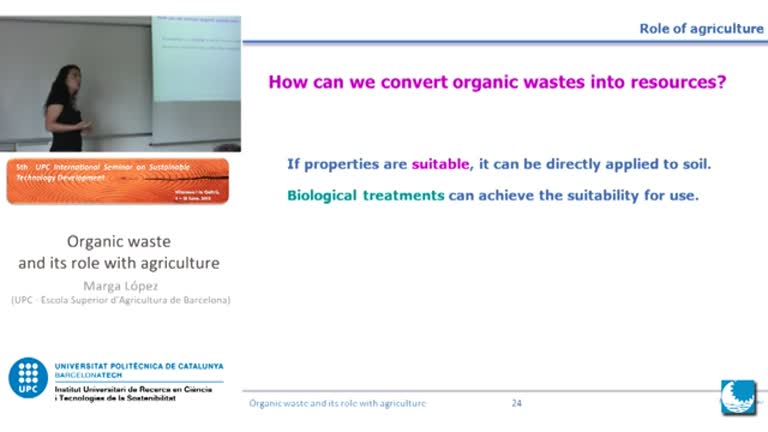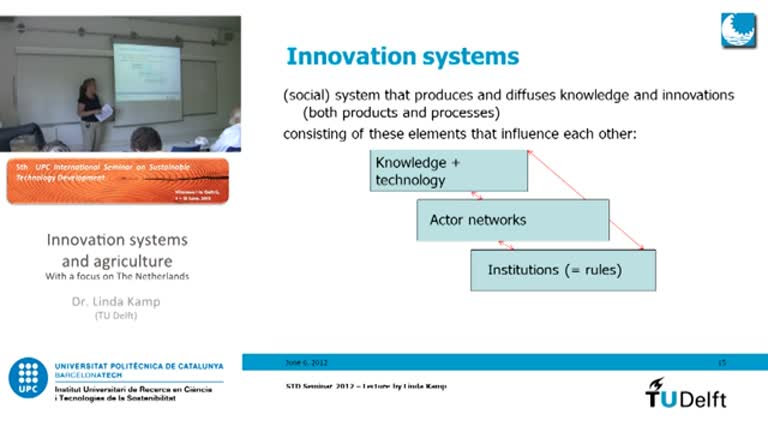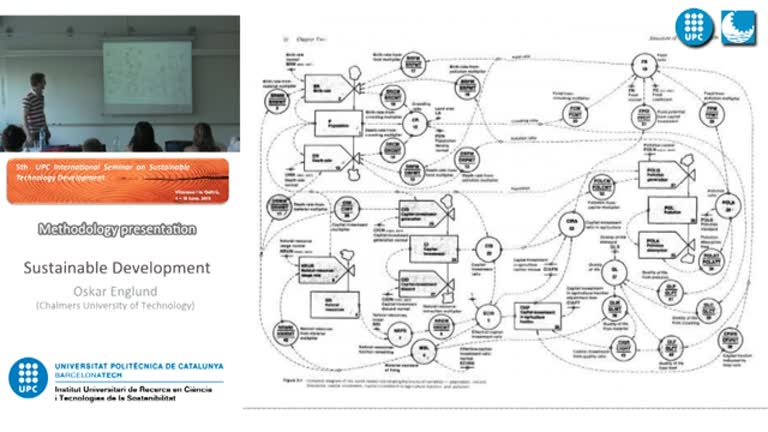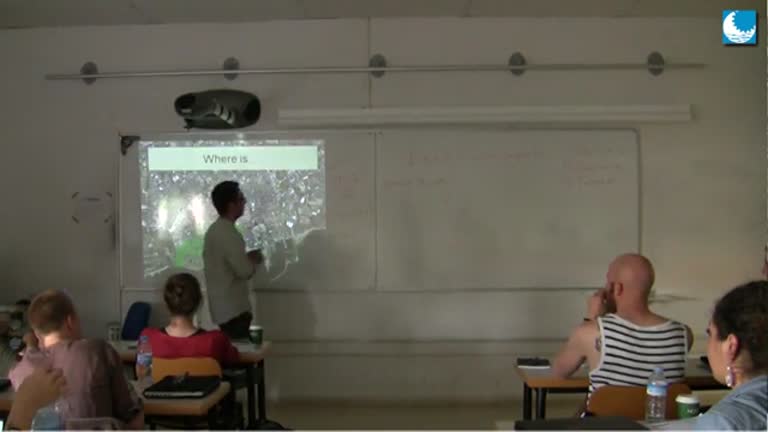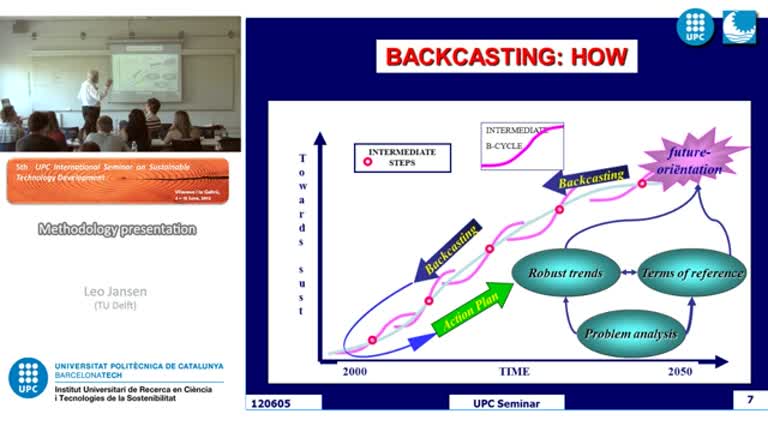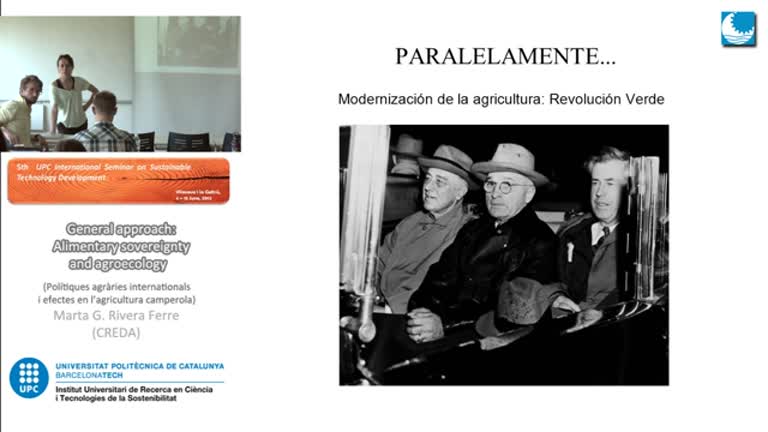Objectes multimèdia amb l’etiqueta: Institut Universitari de Recerca en Ciència i Tecnologies de la Sostenibilitat
Resultats de la cerca
Dialogue 1 : Production model. Ecological agriculture vs "conventional" agriculture. The case for agroecology
Accés obert
7 de juny 2012
Diàleg. Due to global food shortages, some stakeholders defend industrial agriculture versus agroecology
Can agroecology organic production sustain the global population without increasing the land currently under cultivation?
Agriculture can be described in terms of two competing models: On the one hand, the industrial model operates within a productivist industrial discourse. Input intensive monocultural methods have resulted in ecological and socioeconomic negative externalities. These affect not only ecosystem services and rural populations but also reverberate throughout the agrifood system.
On the other hand, agroecology can be placed within a holistic paradigm that promotes interdisciplinary collaboration between researchers, growers, consumers and other stakeholders to work towards an agrarian sector that operates under ecological and socioeconomic principles.
An important argument made by proponents of the industrial model is that ecological models of agriculture do not produce as much food as the conventional model and therefore would cause global food shortages if implemented on a large scale.Questions to speakers
1- Who should benefit from the use of agricultural land? For what uses and needs? Who should decide?
2- What is the role of biotechnology in agriculture? And what is the role in agroecology? Angel and/or devil?
Can agroecology organic production sustain the global population without increasing the land currently under cultivation?
Agriculture can be described in terms of two competing models: On the one hand, the industrial model operates within a productivist industrial discourse. Input intensive monocultural methods have resulted in ecological and socioeconomic negative externalities. These affect not only ecosystem services and rural populations but also reverberate throughout the agrifood system.
On the other hand, agroecology can be placed within a holistic paradigm that promotes interdisciplinary collaboration between researchers, growers, consumers and other stakeholders to work towards an agrarian sector that operates under ecological and socioeconomic principles.
An important argument made by proponents of the industrial model is that ecological models of agriculture do not produce as much food as the conventional model and therefore would cause global food shortages if implemented on a large scale.Questions to speakers
1- Who should benefit from the use of agricultural land? For what uses and needs? Who should decide?
2- What is the role of biotechnology in agriculture? And what is the role in agroecology? Angel and/or devil?
Small-scale livestock farming and the world agri-food system : the particular case of organic livestock farming in Catalonia
Accés obert
6 de juny 2012
This presentation will be split in two parts. At first, a general overview will be made about the present situation and main roles of small-scale livestock farming in the world. Secondly, the specific case of organic livestock farming in Catalonia will be more in-depth examined.
Salvem l'Ortoll : how can the agroecology contribute to the presentation of this space
Accés obert
5 de juny 2012
Backcasting for sustainable development : building a future view
Accés obert
5 de juny 2012
Backcasting is an instrument to develop a path towards a realistic desirable future for a given theme (e.g. sustainable agriculture, sustainable food etc). It involves the following steps: problem definition, establishment of terms of reference for solutions (here, in relation to sustainability and to functionality), brief description of some future views, selection/construction of a final future view, establishment of backcasting steps (working backwards from the future view).
As part of the talk, the "selection of relevant future trends" will be discussed. This involves making an inventory of trends relevant to the theme and categorising them graphically with respect to probability and impact. Taking such steps allows the most probable scenarios to be taken into account when establishing future views.
As part of the talk, the "selection of relevant future trends" will be discussed. This involves making an inventory of trends relevant to the theme and categorising them graphically with respect to probability and impact. Taking such steps allows the most probable scenarios to be taken into account when establishing future views.
Seminar presentation
Accés obert
4 de juny 2012
Presentació del Cinquè Seminari Internacional de Sostenibilitat
Presentació del Cinquè Seminari Internacional de Sostenibilitat
Presentació del Cinquè Seminari Internacional de Sostenibilitat
- ← Anterior
- 1
- 2 (current)
- Següent →


